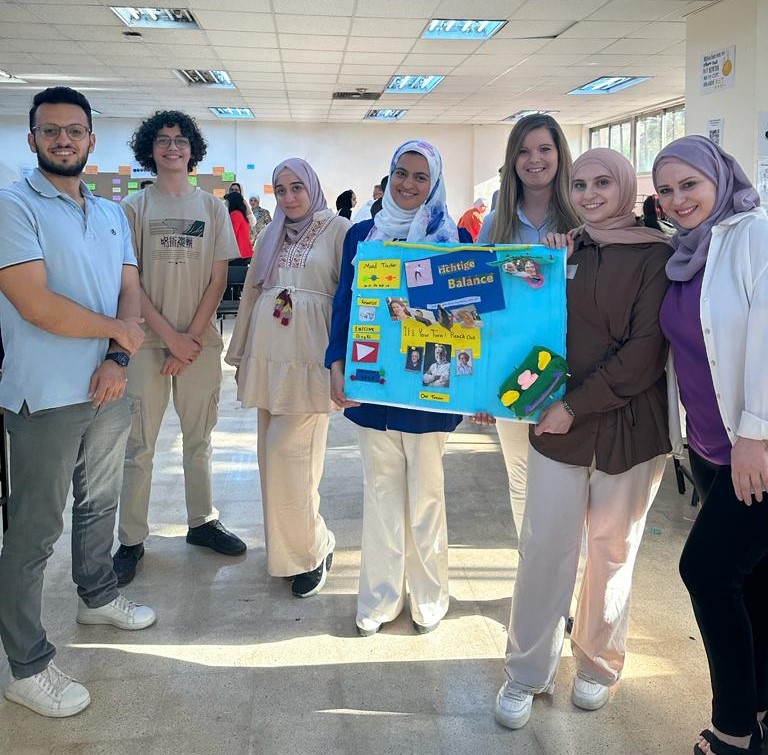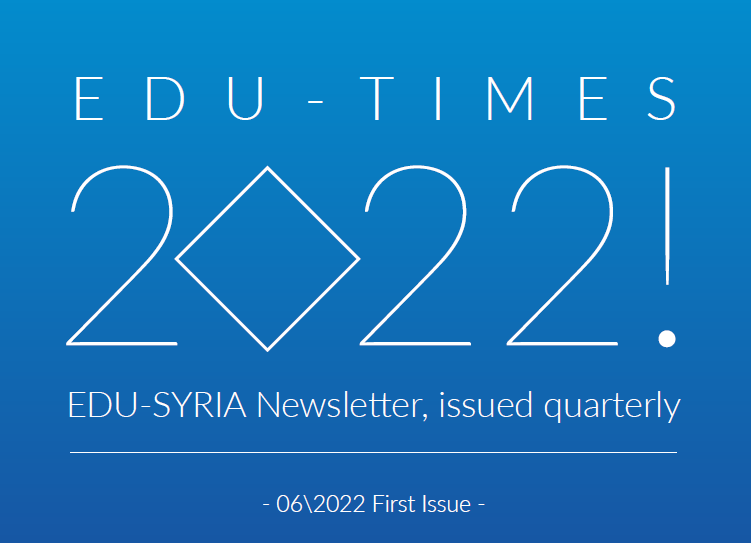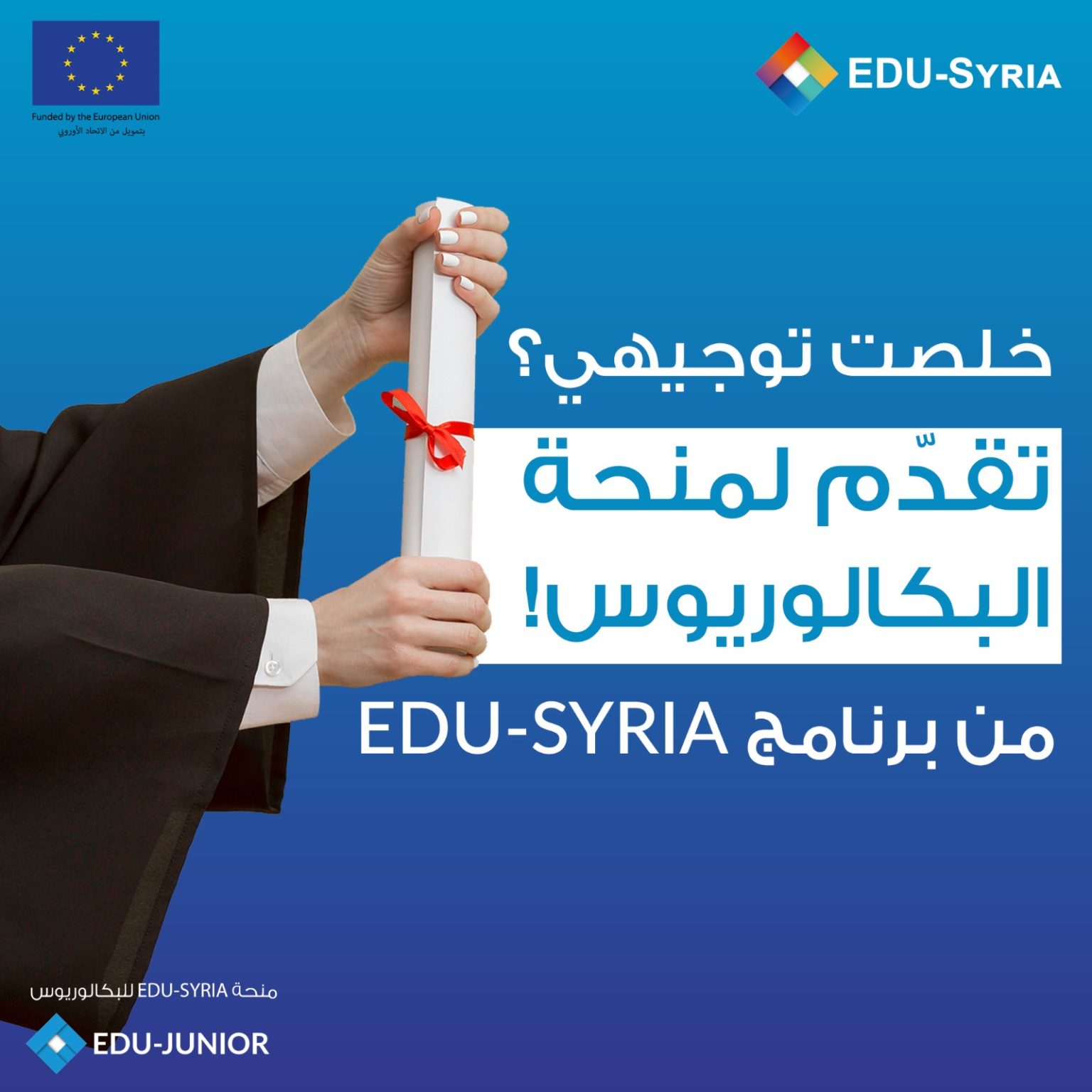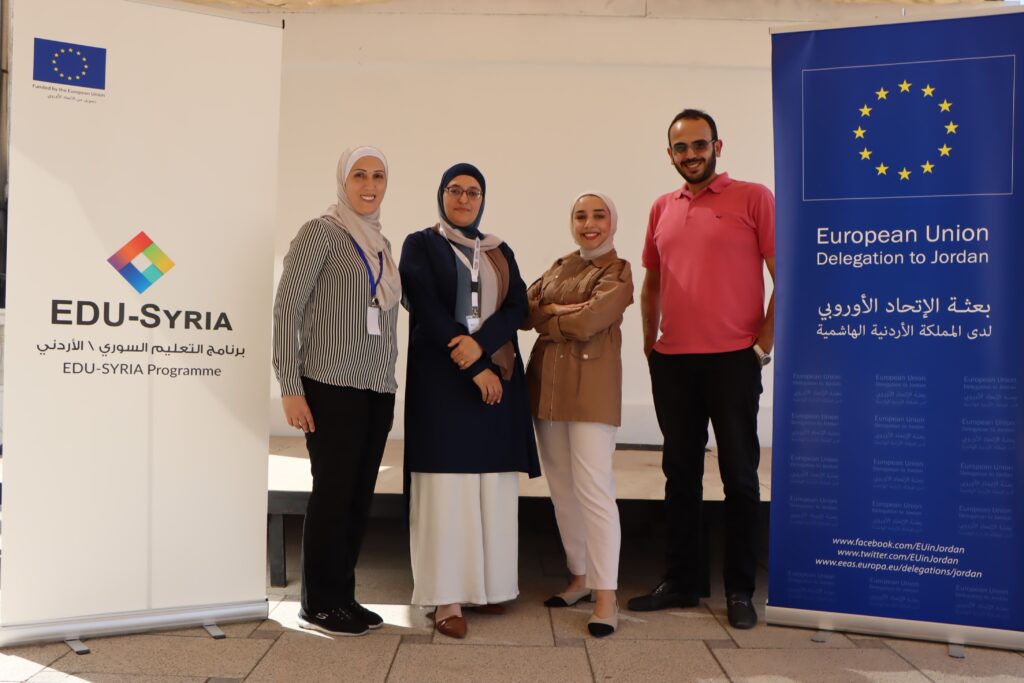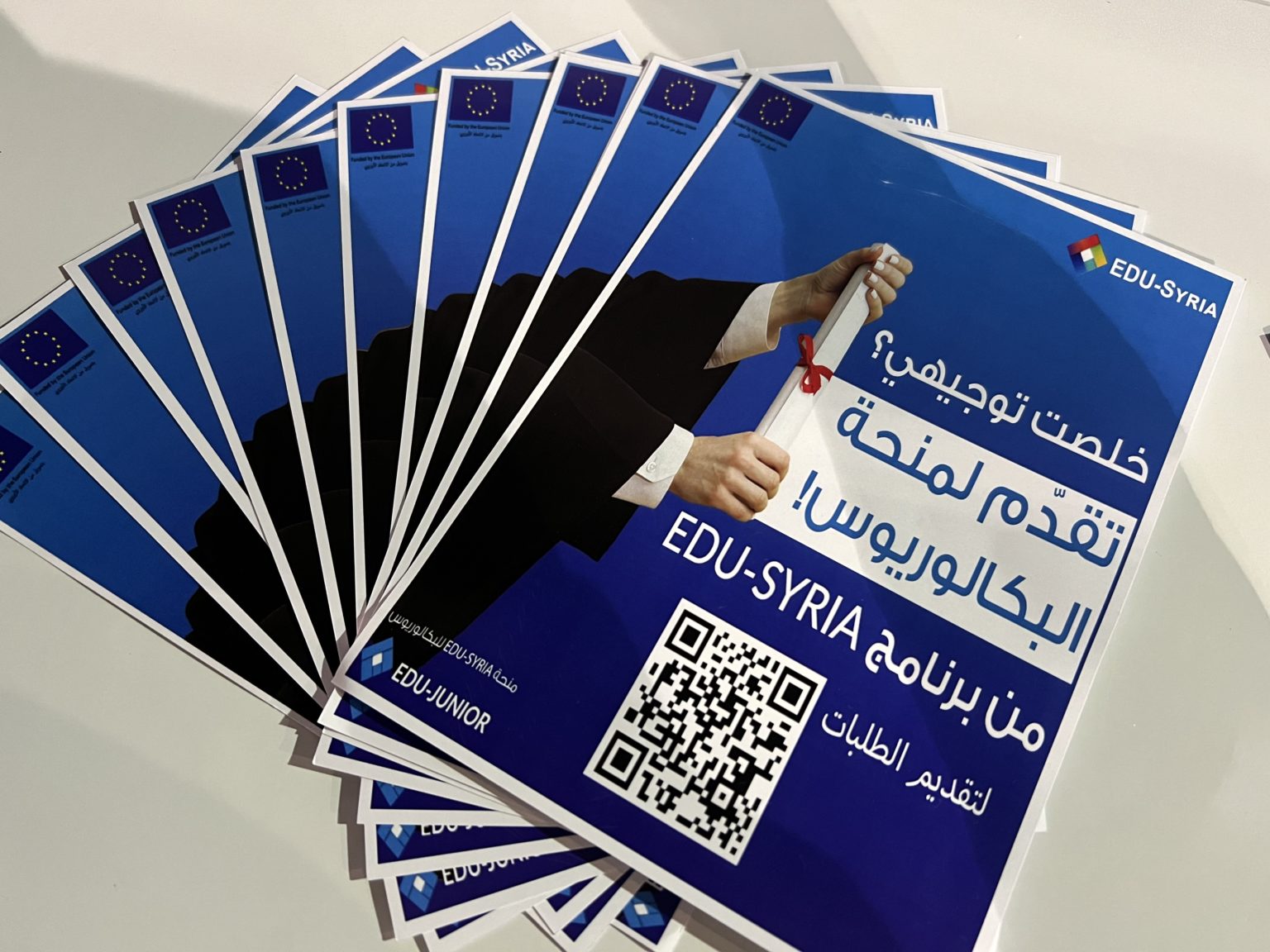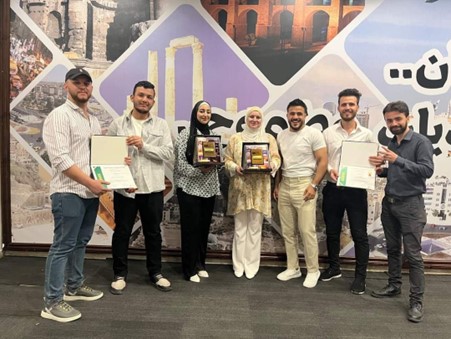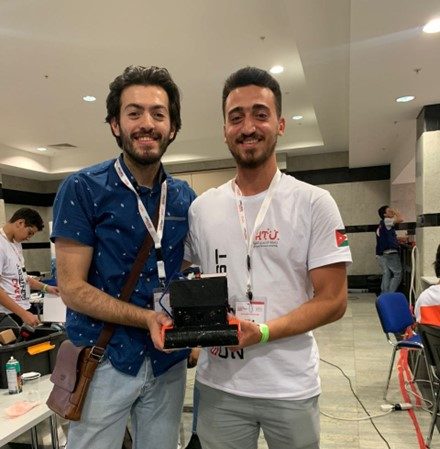EDU-SYRIA students of the Graduate Studies Scholarship Program (GSSP), managed by DAAD Jordan, actively took part in a four-day Design Thinking workshop. The event, organized by Impact Week Germany and IBTECAR Consulting Jordan, unfolded at the University of Jordan from 18th to 22nd October 2023. The workshop involved junior coaches from diverse sectors, such as academia, industry, and governmental bodies. Throughout the workshop, a dynamic blend of theory and hands-on application was presented, fostering collaboration and enhancing participants’ skills. Going beyond individual development, the event successfully cultivated a professional network poised to integrate Design Thinking into various fields.
EDU-SYRIA conducted a rigorous job readiness English language course between Tuesday, 21st of November 2023 to Sunday, 10th of December 2023 for approximately 60 beneficiaries of the Bottleneck Alleviation Programme (BAP) under the management of Nuffic. The objective of this course was to impart training in English communication skills and vocabulary, equipping the participants with the necessary linguistic proficiency to navigate situations where basic English fluency is essential. Specifically, the focus was on providing the skills and knowledge needed to access the labor market successfully The course was held in-person by Amideast, a leading language and training center in Jordan, …
EDU-SYRIA Scholarship Program, funded by the EU and managed by the German Jordanian University (GJU) with a collaboration of the Albert Einstein German Academic Refugee Initiative (DAFI Program), funded by the German Government, the Said and Asfari, and administered by UNHCR in partnership with The Noor Al Hussein Foundation, are thrilled to announce the launch of the first phase results to accept a number of Syrian refugee candidates for a full scholarship to complete a bachelor’s degree at Jordanian universities, September 2023, as part of our commitment to enabling Syrian refugees who registered with the UNHCR and hold a valid …
Call for Applications for a Bachelor’s degree, BTEC HND Level 5 Diploma, or bridging to a Bachelor’s degree scholarship by DAFI and EDU-SYRIA scholarships. The United Nations Higher Commissioner for Refugees (UNHCR) and the European Union Delegation to the Hashemite Kingdom of Jordan (EU Jordan), represented by EDU-SYRIA, are proud to announce jointly the call for applying for a Bachelor’s degree, BTEC HND Level 5 Diploma, or bridging to a Bachelor’s degree scholarship under the Albert Einstein German Academic Refugee Initiative (DAFI) program, and EDU-SYRIA program funded by the German Government, the Said and Asfari Foundations and the European Union. …
EDU-SYRIA engaged in a series of interviews conducted by DAFI scholarship program with the aim of selecting refugee candidates for a full bachelor’s degree scholarship at Jordanian universities. The interviews took place from Wednesday, 30th of August to Monday, 18th of September 2023. The participation of EDU-SYRIA falls within the framework of the collaborative partnership between EDU-SYRIA, represented by the European Union, and the DAFI (Albert Einstein German Academic Refugee Initiative) scholarship program, funded by the German Government, Said Foundation, and the Asfari Foundation and managed by the UNHCR in partnership with Noor Al Hussein Foundation, aimed at exchanging experiences …
EDU-SYRIA, a prominent educational initiative committed to empowering Syrian refugees and vulnerable Jordanian youth, took center stage at the prestigious FORSA Explore Event on Saturday 26th of August 2023 hosted by For9a. During this highly anticipated occasion, EDU-SYRIA unveiled its scholarship offerings for the upcoming academic year 2023-2024, marking a significant stride in the mission to transform lives through education. FORSA Explore Event, known for its commitment to fostering educational opportunities and career development, provided an ideal platform for EDU-SYRIA to showcase its dedication to making a positive impact on individuals’ futures. At the heart of this commitment is EDU-SYRIA …
EDU-SYRIA students, Abdullah Al-Mahmoud, Muhammad Abdul-Rahman Jawad, Ammar Al-Labban, and Saeed Asida, majoring in architecture at Zarqa University, won second place in a competition called “Students Reinvent Cities” by C40 Cities, a global network of nearly 100 mayors of the world’s leading cities that are united in action to confront the climate crisis, in partnership with the Greater Amman Municipality on Monday 31th of July 2023. In an inspiring competition, the Evergreen team secured a commendable second-place finish, while the Living Bridge team demonstrated their prowess with a well-deserved third place. This remarkable event, guided by the expert supervision of …
Mohammed Al-Zamil, a graduate of EDU-SYRIA, participated in the Second National Sumo Robots Championship on Friday 14th of July 2023 at Al Hussein Technical University. The championship included 256 teams and over 550 participants from various universities, schools, and institutions dedicated to robotics. The National Sumo Robots Championship is considered one of the most important sumo robotics competitions in the Middle East. Mohammed, a graduate of Energy Engineering from Zarqa University, took part in this competition as a team supervisor and assistant for four other teams. These teams achieved commendable positions, including the sixteenth place out of 256 teams. It is …
“It was a distinctive and wonderful experience, during which we learned a lot and got to know new people from various fields” began Mazen Al Natour, EDU-SYRIA student, as he talked about his experience in the Second National Sumo Robots Championship held on Friday 14th of July 2023 at Al Hussein Technical University. The National Sumo Robots Championship is one of the most important robotics competitions in the Middle East. Through the team he participated with, Mazen managed to reach the quarterfinals in a competition that included around 256 teams and over 550 competitors from various universities and institutions. His …

